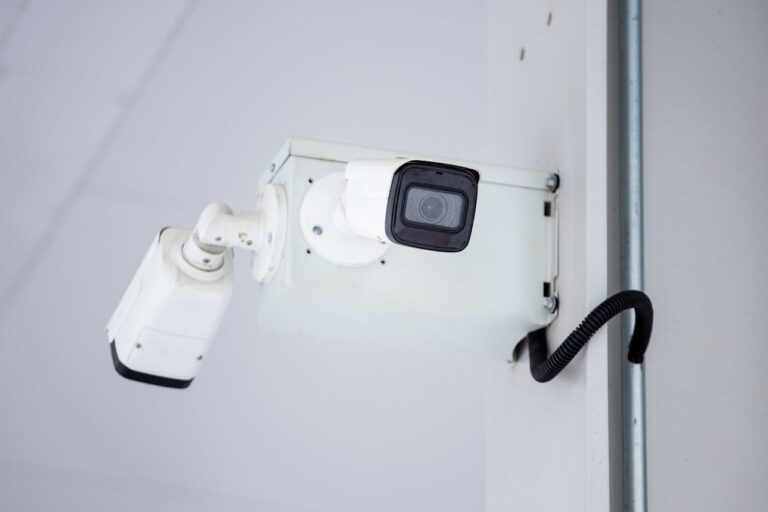
In the fast-paced world of hospitality, staying ahead of the competition requires constant innovation and adaptation. One of the most significant technological advancements reshaping the industry is the adoption of cloud-based hotel management systems. These systems offer a range of advantages that enhance operational efficiency, improve guest experiences, and increase profitability. As we explore the future of hospitality, it’s essential to understand the benefits of cloud-based hotel management software solutions and how they can transform the way hotels operate.
What are Cloud-Based Hotel Solutions?
Cloud-based hotel solutions are software platforms hosted on remote servers and accessed over the internet. Unlike traditional on-premises systems that require extensive hardware and maintenance, cloud-based systems offer a more flexible and scalable approach to managing hotel operations. These solutions cover various aspects of hotel management, including reservations, front desk operations, housekeeping, revenue management, guest communications, and analytics.
Key Advantages of Cloud-Based Hotel Solutions
1. Cost Efficiency
One of the primary advantages of cloud-based hotel solutions is cost efficiency. Traditional hotel management systems require significant upfront investments in hardware, software licenses, and IT infrastructure. In contrast, cloud-based systems operate on a subscription model, eliminating the need for expensive hardware and reducing IT maintenance costs. This allows hotels to allocate resources more effectively and invest in areas that directly impact guest satisfaction and revenue growth.
2. Scalability and Flexibility
Cloud-based hotel solutions offer unparalleled scalability, making them ideal for hotels of all sizes. Whether you operate a small boutique hotel or a large international chain, cloud systems can be easily scaled to meet your needs. As your business grows, you can add new features and functionalities without the hassle of upgrading hardware or installing new software. This flexibility allows hotels to adapt quickly to changing market conditions and guest expectations.
3. Real-Time Data Access and Insights
In the hospitality industry, data is king. Cloud-based hotel solutions provide real-time access to critical data and insights that drive decision-making. From occupancy rates and revenue forecasts to guest preferences and feedback, hotels can leverage data to optimize operations and enhance guest experiences. With powerful analytics tools, hoteliers can identify trends, predict demand, and implement strategies to maximize revenue and improve guest satisfaction.
4. Improved Guest Experience
Enhancing the guest experience is a top priority for hoteliers, and cloud-based solutions play a crucial role in achieving this goal. These systems enable seamless and personalized guest interactions by integrating with various guest-facing applications. For instance, mobile check-in and check-out, digital room keys, and personalized communication enhance convenience and satisfaction. By leveraging guest data, hotels can deliver tailored experiences that exceed expectations and foster brand loyalty.
5. Enhanced Collaboration and Communication
Cloud-based hotel solutions facilitate collaboration and communication across departments, improving operational efficiency. Staff members can access real-time information from any device, allowing them to coordinate tasks and respond to guest requests promptly. Whether it’s housekeeping, maintenance, or front desk operations, cloud systems streamline workflows and ensure that everyone is on the same page. This level of coordination enhances productivity and minimizes the risk of errors.
6. Data Security and Compliance
Data security is a critical concern for the hospitality industry, as hotels handle sensitive guest information daily. Cloud-based hotel solutions prioritize data security and compliance by implementing robust encryption, authentication, and data protection measures. Reputable cloud providers adhere to industry standards and regulations, ensuring that guest data is safe from breaches and unauthorized access. This level of security fosters trust and confidence among guests, enhancing the hotel’s reputation.
7. Reduced IT Burden
Maintaining an on-premises hotel management system requires a dedicated IT team to handle software updates, hardware maintenance, and troubleshooting. Cloud-based solutions alleviate this burden by shifting the responsibility to the cloud provider. Regular updates and maintenance are performed automatically, ensuring that the system is always up-to-date and running smoothly. This allows hotel staff to focus on delivering exceptional guest experiences rather than dealing with technical issues.
8. Seamless Integration with Third-Party Systems
Hotels often rely on a variety of third-party systems and applications to manage different aspects of their operations. Cloud-based hotel solutions offer seamless integration with these systems, creating a unified ecosystem that enhances efficiency and productivity. Whether it’s connecting with property management systems, channel managers, or revenue management tools, cloud solutions enable hotels to leverage their existing technology stack without disruptions.
The Future of Cloud-Based Hotel Solutions
As technology continues to evolve, cloud-based hotel solutions are poised to play an even more significant role in shaping the future of hospitality. Here are some trends and innovations to watch for:
1. Artificial Intelligence and Machine Learning
Artificial intelligence (AI) and machine learning (ML) are transforming the way hotels operate by automating processes and delivering personalized experiences. Cloud-based systems leverage AI and ML to analyze guest data, predict preferences, and offer tailored recommendations. Chatbots and virtual assistants powered by AI enhance guest interactions and streamline service delivery, providing guests with instant responses and assistance.
2. Internet of Things (IoT) Integration
The Internet of Things (IoT) is revolutionizing the hospitality industry by enabling smart and connected devices. Cloud-based hotel solutions integrate with IoT devices to offer enhanced guest experiences and operational efficiency. From smart thermostats and lighting to voice-activated room controls, IoT technology creates a seamless and convenient environment for guests, while providing hotels with valuable data on energy consumption and maintenance needs.
3. Mobile-First Experiences
With the increasing use of smartphones and mobile devices, cloud-based hotel solutions are focusing on delivering mobile-first experiences. Mobile apps for guest check-in, room service, and concierge services enhance convenience and empower guests to take control of their stay. Hotels that prioritize mobile experiences can differentiate themselves in a competitive market and attract tech-savvy travelers.
4. Sustainability and Eco-Friendly Practices
Sustainability is becoming a top priority for the hospitality industry, and cloud-based solutions can contribute to eco-friendly practices. By optimizing energy usage, reducing paper waste, and implementing smart building technologies, hotels can minimize their environmental impact. Cloud systems provide the data and insights needed to implement sustainable initiatives and track progress toward sustainability goals.
5. Enhanced Guest Personalization
The future of hospitality lies in delivering hyper-personalized guest experiences. Cloud-based hotel solutions enable hotels to collect and analyze guest data to offer tailored recommendations and services. From personalized welcome messages to customized amenities, hotels can create memorable experiences that resonate with guests and foster loyalty.
Also Read: What are the Different Job Roles in Software Architecture?
Conclusion
The future of hospitality is bright, thanks to the transformative power of cloud-based hotel solutions. These systems offer a range of advantages that enhance efficiency, improve guest experiences, and drive profitability. As hotels embrace cloud technology, they can stay ahead of the competition and meet the evolving expectations of modern travelers. By leveraging the latest trends and innovations, hoteliers can create a seamless and personalized experience that keeps guests coming back for more. The cloud is not just a technological advancement; it’s a catalyst for change and a key to unlocking the full potential of the hospitality industry.
4o








